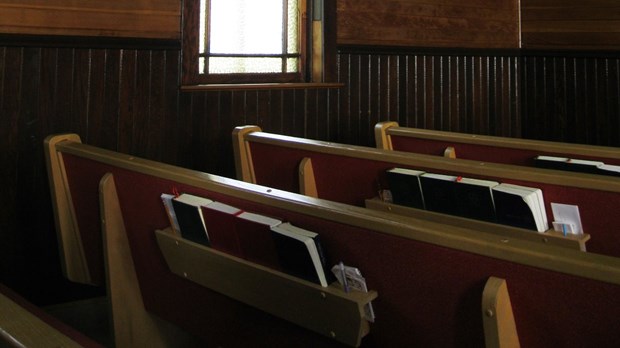
In recent years, I’ve spent a lot of time ministering in churches of various sizes, styles, denominations and regions of the world.
Because most of my work involves resourcing small churches, a lot of that time has been spent in rural communities, agricultural areas and old-school congregations. Churches that will never be on anyone’s list of cutting-edge ministry.
You know, uncool churches.
I love uncool churches.
Here are four of the unexpected, sometimes counterintuitive truths I’m realizing after spending time with them:
1. A lot of uncool churches are doing genuine, contextual ministry
There’s an inherent prejudice in too much of church leadership today that favors the cool, the new, the relevant and the flashy.
Don’t get me wrong, I love new stuff. The small church I’ve served for the last 26+ years would probably rate high on most people’s cool spectrum. But being cool never won anyone to Jesus.
In many contexts, being cool is more of a turnoff than a help. Why? Because the community they minister in isn’t cool either. It’s not a Starbucks-Venti-soy-milk-latte community, it’s a Subway-sandwich-in-the-corner-of-the-gas-station town.
There are a whole lot of uncool, but loving churches doing vibrant, healthy and effective ministry in their (also uncool) communities.
2. We don’t understand their context as well as we think
Most church leaders, thought provokers and trendsetters have no idea what the typical small church needs.
Sorry (not sorry) to be so blunt, but it’s true.
We’re promoting ideas and resources that simply don’t fit in the context of a whole lot of churches – and we don’t even know we’re missing the mark. Instead, we too often assume that if what we’re doing isn’t working for them, the problem must be with them, not us.
3. We’re not giving them the credit they deserve
An old-school church is what’s needed in an old-school town. That’s their context and they fit it like a comfortable pair of overalls.
When a church is blessing the people they’re called to reach, they should be celebrated, not ridiculed for not being cool enough.
If we truly want to help all churches, we need to spend way more time listening to uncool churches. We need to worship with them, walk through their towns and appreciate their ministry context.
But too often, we don’t. Instead, we’re speaking to them with foreign ideas from a foreign place. Then we blame them when our ideas don’t fit their context.
In other words…
4. Cool churches can’t give them what they need
One of the primary frustrations I hear from the pastors and members of uncool churches is how little help they get from denominational leaders and church growth experts.
It’s not that no one’s trying, it’s that most of the people producing church leadership resources are coming from a larger, big city, new-school context.
They’re in cool churches. Consequently, they have no idea what’s really needed in places that are off the beaten path.
Because of this, we’re not providing the majority of churches with what they actually need for their context.
So What Should We Do?
The reason we’re not helping these churches and pastors is because we don’t know these churches and pastors. We don’t understand them because we’re not listening to them.
The burden for this disconnect is not on them, it’s on us.
But it doesn’t have to be this way.
Those of us who are in a position of influence need to spend more time with small church pastors, in rural congregations, and among uncool churches.
Not just to offer help (although that’s always appreciated), but to ask for help. Don’t just drop by to speak, show up to listen.
When you’re designing your next curriculum, program, event or conference, have some small church and rural pastors in the room. Take their concerns seriously. Incorporate their ideas along with yours.
Their churches are a blessing, their ministries are healthy and their ideas are valid.
If we ask them to help us, they will. And then, we can all help each other.
Copyright © 2019 by the author or Christianity Today.
Click here to read our guidelines concerning reprint permissions.
Pivot is a part of CT's
Blog Forum. Support the work of CT.
Subscribe and get one year free.
The views of the blogger do not necessarily reflect those of Christianity Today.
Join in the conversation about this post on Facebook.
- A Discipleship Strategy Small Churches Can Actually Follow, with Darrell Stetler (Ep 38)Darrell and Karl talk about the importance of discipleship in the life of the church – and as a central role in our calling as pastors.
- Why Proximity and Longevity Matter in Pastoral Ministry, with Alan Briggs (Ep 36)Karl interviews Alan Briggs, a pastor, the author of Staying is the New Going, the host of the Right Side Up Leadership podcast and StayForth.com.
- Seculosity: Ministry In The Era Of Secular Religion, with David Zahl (Ep 37)Karl Vaters interviews David Zahl, author of Seculosity: How Career, Parenting, Technology, Food, Politics, and Romance Became Our New Religion and What to Do about It.
- Should You Start a Podcast? And Positive Ministry Trends, with Aron Utecht (Ep 35)Karl Vaters interviews Aron Utecht, a pastor and the host of the Good Ideas for Churches podcast















